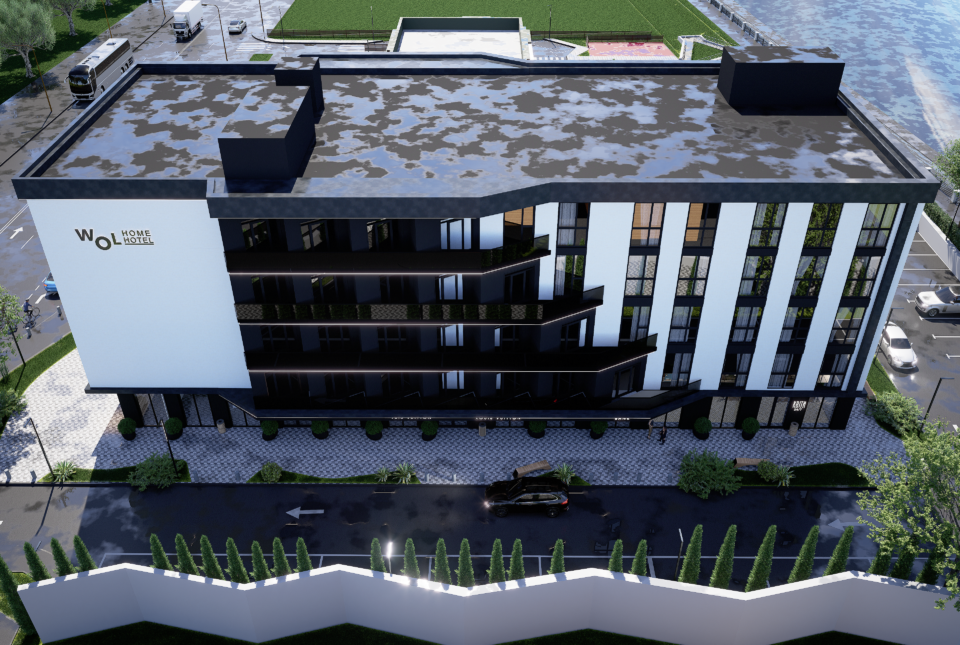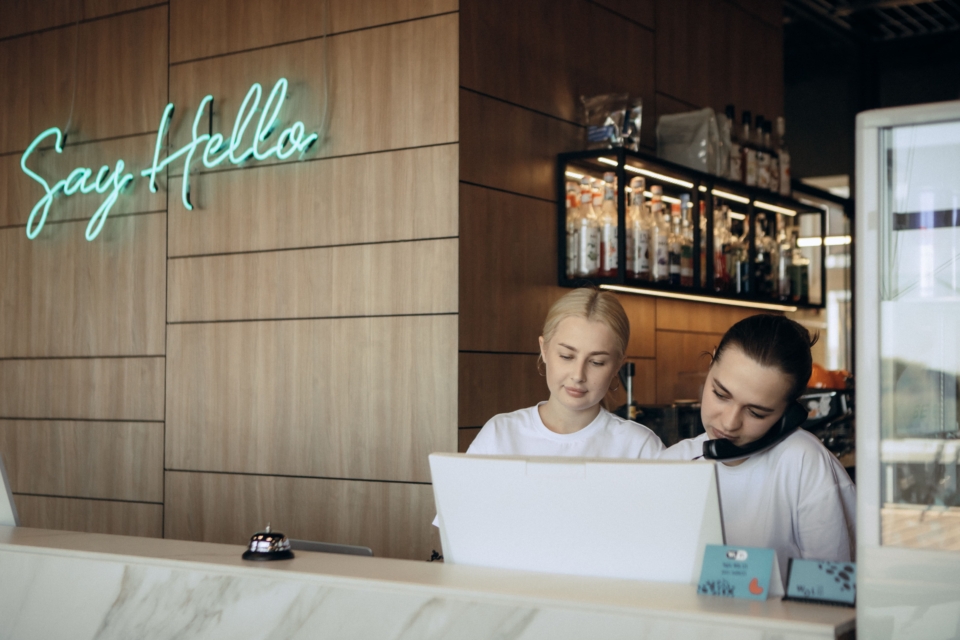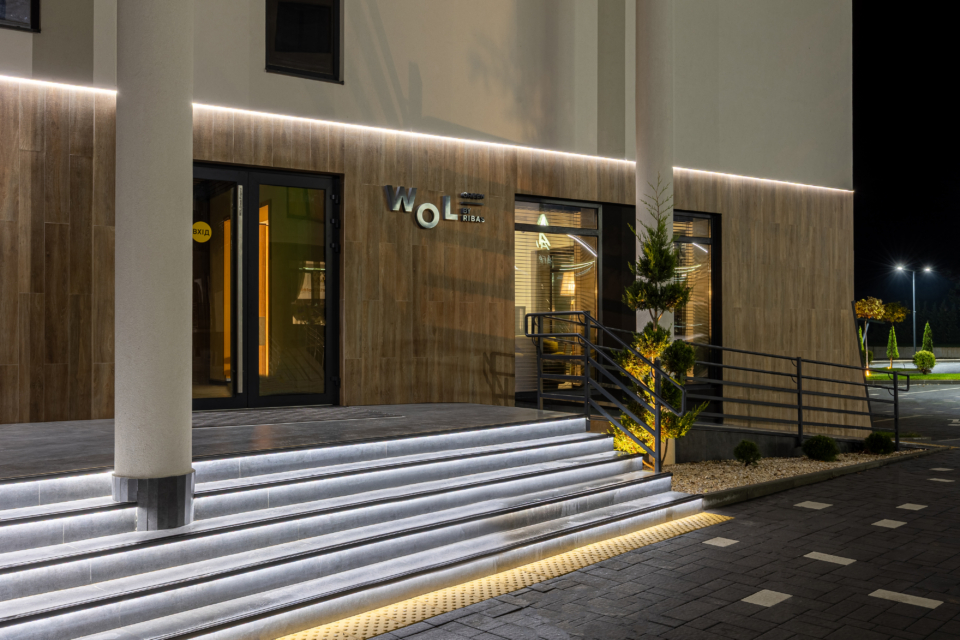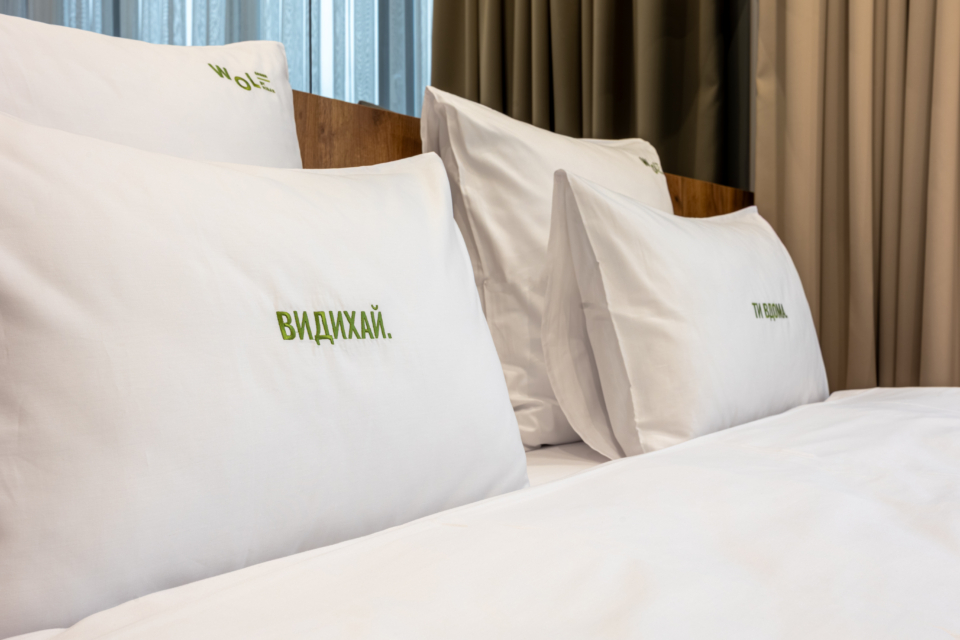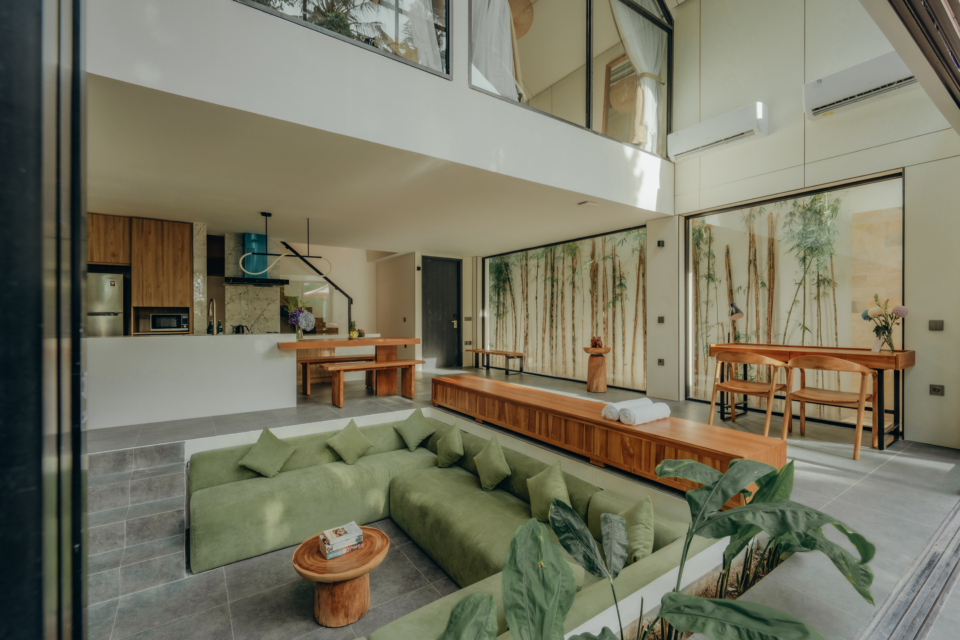How to launch a hotel: the case of DIDUKH Eco-Hotel & SPA
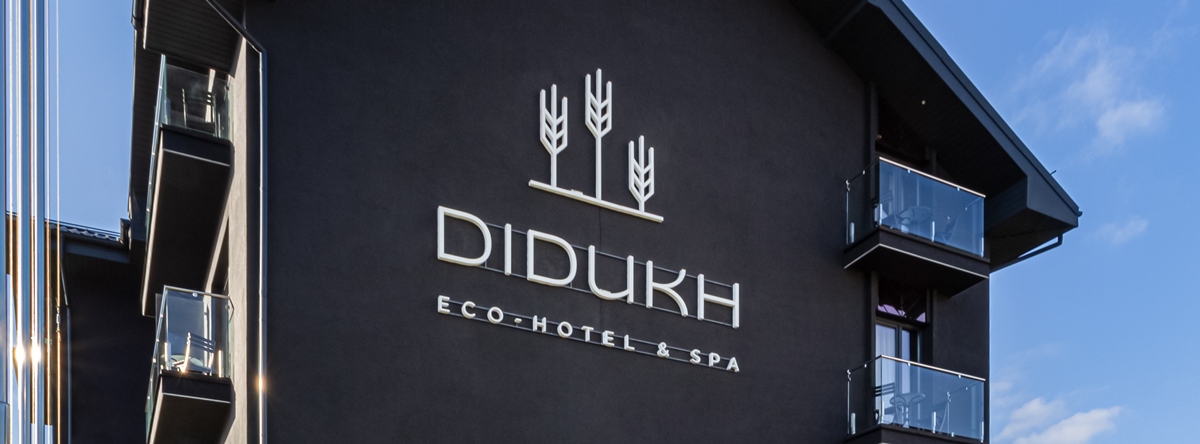
Yulia Kosenko, Chief Operating Officer of Ribas Hotels, spoke in an interview about one of the most difficult stages of a hotel operator – the launch of a hotel. As an example, we chose the DIDUKH Eco-Hotel & SPA in Bukovel, which our company took over the management of an already built hotel. The team had to go through concept adaptation, bug fixes, and a test launch period before fully launching the hotel. However, all this was not in vain, as it currently has a 9.6 rating on Booking.com.
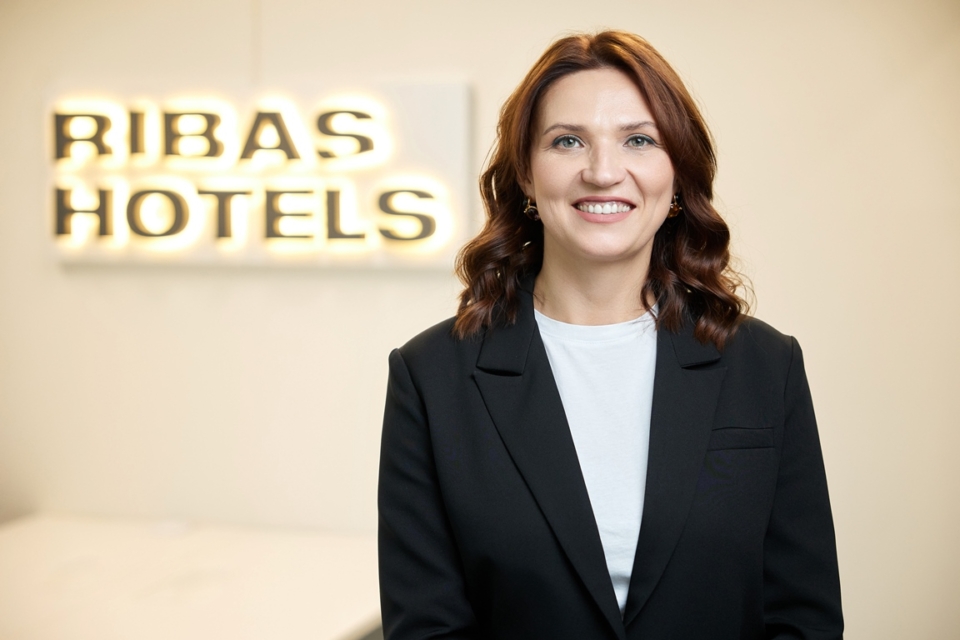
Tell us about the process of launching a hotel. What does it include?
This is one of the most complex stages, taking three to six months. We break it down into different areas, such as general issues, legal aspects, finance, marketing and sales, recruiting, selection and training of the team. We also pay attention to feedback from guests.
In all departments, we clearly understand the tasks we are facing: from the legal aspects of obtaining a license and concluding contracts to marketing, including creating a website, setting up a booking module, publishing on Booking.com, conducting a photo shoot, and developing a print design.
At this stage, we also need to find a manager who will start forming a team. And then there is the technical component: acceptance of equipment, cooperation with contractors, and development of a maintenance schedule.
All processes take place in parallel. A systematic approach allows us to ensure that all the preparations are completed in time for the opening. We follow the guest’s path: when we open the hotel doors, our uniformed employees understand how to communicate with guests, people can pay, get a room key, enter a warm room where perfumes, branded water and all the necessary printing are waiting for them. This is a difficult stage. It always seems that something else can be improved.
Given that you have taken over the management of the ready-made DIDUKH Eco-Hotel & SPA, what should owners pay attention to when designing and building hotels?
During the construction of a hotel, owners should pay special attention to the availability of all the necessary documentation from contractors. This is necessary for our company to be able to technically accept the facility and to have a clear understanding of when the last maintenance was performed and how often it should be carried out.
In addition, when we entered the project, some aspects of the hotel concept were not realized. For example, the concept of a “family hotel”. It turned out that not all rooms were safe for children under 6 years old. For example, there were very low parapets, as well as stairs into which a foot could fall, and black walls on which every touch of a child would be visible. A children’s room was built in the hotel, but we have now reformatted it for older children with a PlayStation.
So in this project, we had to change the concept and count on a slightly different audience. In general, the number of rooms could have been different, taking into account the location.
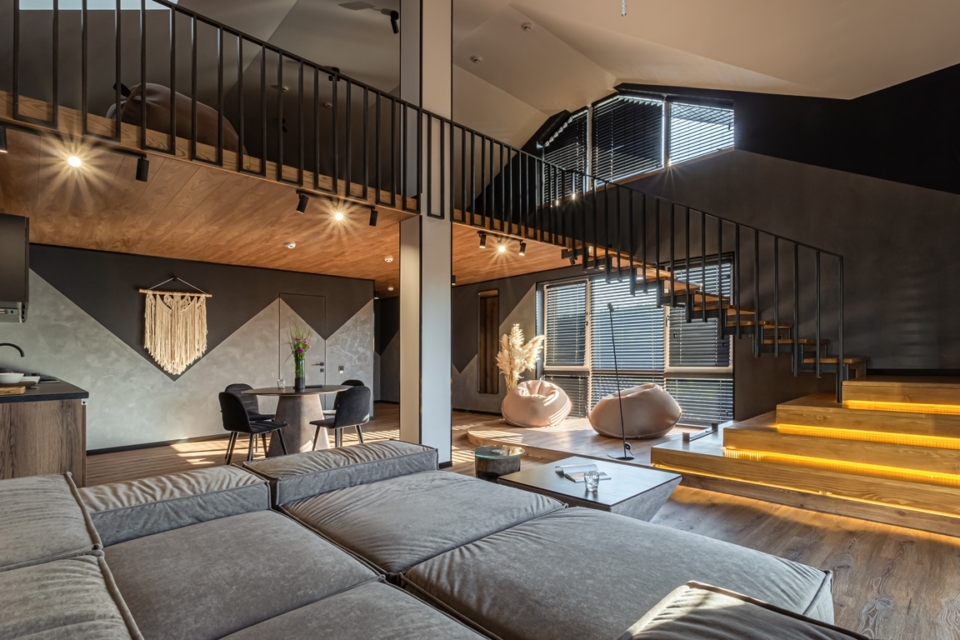
On the photo: DIDUKH Eco-Hotel & SPA
How did you manage to adapt them to Ribas Hotels’ standards?
We are currently designing the second phase, where we are actively working on conceptual changes to accommodate a different audience. The improvements also include the introduction of technical rooms and other necessary changes to improve guest service and ensure efficient staff work.
We will have to combine the engineering networks with everything else. Once completed, the hotel will add 32 rooms. In total, the hotel will have 50 rooms.
Tell us more about the launch phase of DIDUKH Eco-Hotel & SPA. What difficulties did you face and how did you solve them? How long did it take?
We had problems with contractors, as some of them were at the front or went abroad. As time passed between the installation of the equipment and the launch of the hotel, we had to find new people to do it. Someone did not respond, someone did not want to go, we launched some equipment via video communication with the contractor.
There were also technical issues, and the system had to be reconfigured. We realized that we would find out all the technical problems that this hotel might have in the first three months of its operation. And that it was impossible to fix everything before the launch. We did have a cold pool in some places, no hot water in others, heating and electricity were turned off. We deliberately provided for a test run, which lasted 15 days, when we sold only half of the room stock and corrected all the shortcomings. This allowed us to quickly work through all the difficulties and provide guests with a comfortable stay.
The price of accommodation during the test period differed significantly – by 3.5 times. The guests who participated in the test understood that it was a launch period and, despite the technical difficulties, highly appreciated the hotel’s service.
In your opinion, what role did the fact that there is a full-scale war in the country play in complicating the process of launching DIDUKH Eco-Hotel & SPA? What aspects did it affect?
War is not considered a force majeure in contracts. Now it is no longer acceptable to deny responsibility for the fact that something did not happen because of military operations. The full-scale war has been going on for almost 2 years now, and the main task is to revise planning and find alternative solutions. Often, we have to buy the wrong equipment or materials because Ukrainian suppliers do not have the stocks we would like. This applies to various component parts, including utensils and equipment. Although we already had most of what we needed, we had to buy some of it.
This year we avoided major problems and interruptions, but the war experience taught us to check everything related to generators and similar systems. In general, we cannot say that the war is a direct factor affecting the process of opening hotels today. Rather, it is a factor that has an impact on the complication of contractors’ work.
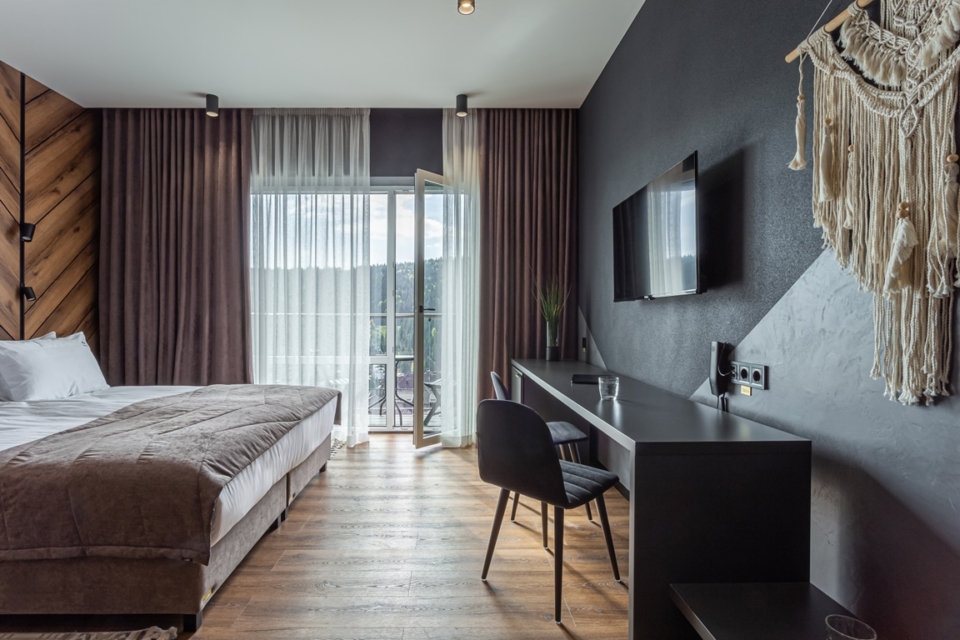
On the photo: DIDUKH Eco-Hotel & SPA
Today, there is a shortage of qualified personnel in the hospitality industry. Using the case of DIDUKH Eco-Hotel & SPA as an example, tell us how you are currently forming a team at Ribas Hotels. What tools do you use for staff training?
It’s great to have a hotel chain, as many vacancies in middle management are filled by employees from other chain properties. For example, the front manager from Odesa, who is now responsible for our hotel division, is an example of such a transition. When we took over the management of the hotel in Bukovel, we knew in advance that key positions would be filled quickly. The technical and regional directors also made it easier to fill the vacancies.
We put a lot of effort into developing our brand, and many people are familiar with and ready to work with Ribas Hotels. In particular, it is easier for us to attract staff, given our cooperation with universities.
For DIDUKH Eco-Hotel & SPA, in particular, this process was quite easy. At the test launch stage, we had the opportunity to involve maids and administrators from the teams of our four other hotels in Bukovel. We started training these employees in other hotels so that they could gain experience in advance.
In general, there is still a shortage of personnel in the market, and now our main focus is on retaining the team. Most of our employees have been with us for a long time, and we set ourselves the task of making motivation depend on the length of service, as well as providing each employee with the opportunity to grow.
This property is highly rated, which makes it stand out among other hotels in Bukovel. We have already fulfilled our commitments for January, and the average price has exceeded our expectations, showing an increase of more than 50%. We planned prices within UAH 5,000, but now they are at UAH 8,000. In particular, during the New Year holidays, the average price per day was approximately UAH 10,000.
Given the location (it’s not the center of Bukovel, you have to drive there) and the road, which is one of the biggest challenges because it’s difficult to get there, the hotel has good reviews and excellent prospects for occupancy.
Subscribe to our blog to keep up with hospitality market trends!




